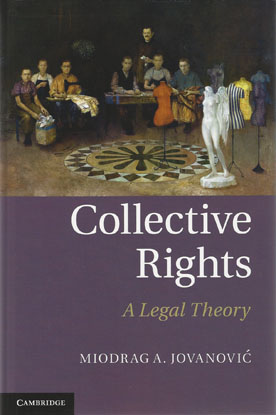We will be closed from 5pm Thursday 17th April for the Easter Bank Holidays, re-opening at 8.30am on Tuesday 22nd April. Any orders placed during this period will be processed when we re-open.

In a departure from the mainstream methodology of a positivist-oriented jurisprudence, Collective Rights provides the first legal-theoretical treatment of this area.
It advances a normative-moral standpoint of 'value collectivism' which goes against the traditional political philosophy of liberalism and the dominant ideas of liberal multiculturalism. Moreover, it places a theoretical account of collective rights within the larger debate between proponents of different rights theories.
By exploring why 'collective rights' should be differentiated from similar legal concepts, the relationship between collective and individual rights and why groups should be recognised as the third distinctive type of right-holders, it presents the topic as connected to the larger philosophical debate about international law of human rights, most notably to the problem of universality of rights.